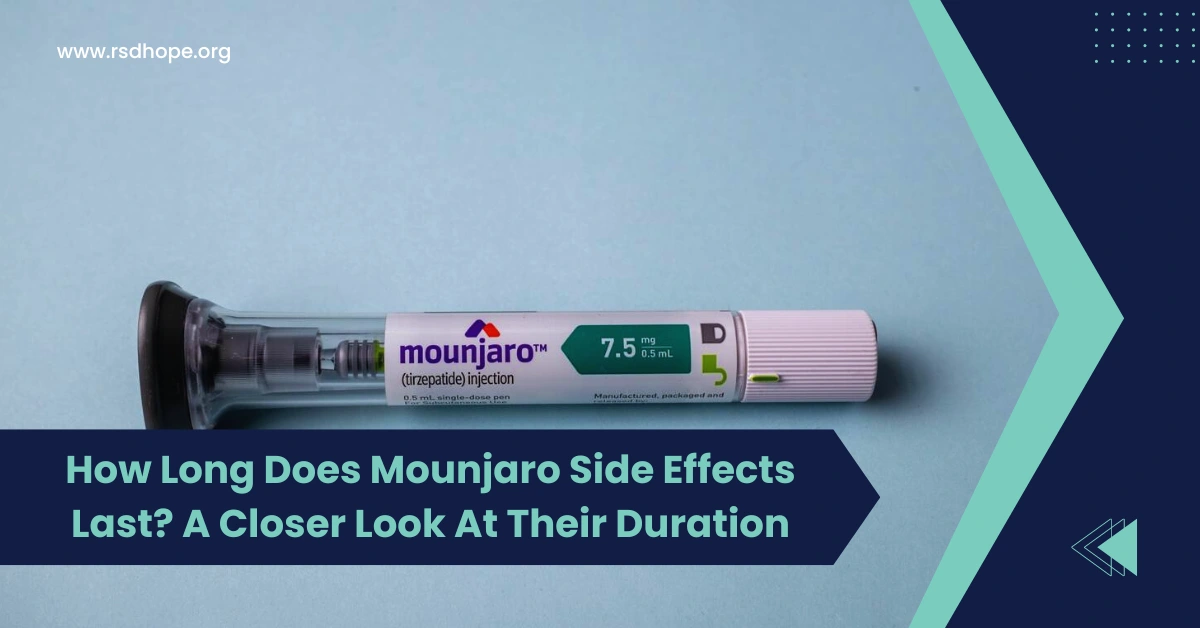Mounjaro, a groundbreaking medication, has gained attention for its potential in treating various health conditions. While it offers hope to many patients, it’s essential to understand that Mounjaro may also come with side effects.
These side effects can vary in severity and duration, and managing them effectively is crucial for a comfortable treatment experience. In this article, we’ll explore the common side effects of Mounjaro, their duration, and strategies to minimize their impact on your daily life.
Key Takeaways
- Mounjaro is a medication used to treat certain health conditions, but it may cause side effects.
- The duration of Mounjaro side effects can vary from person to person and may be temporary or persistent.
- Effective management of side effects involves lifestyle modifications and open communication with healthcare providers.
What is Mounjaro?
Mounjaro is a prescription medication that belongs to a class of drugs called GLP-1 receptor agonists. It is composed of tirzepatide, a molecule that activates specific receptors in the body to regulate blood sugar levels and promote weight loss.
Mounjaro is commonly prescribed for the treatment of type 2 diabetes and obesity, helping patients manage their conditions more effectively. When taking Mounjaro, it is crucial to follow the prescribed dosage and adhere to the instructions provided by your healthcare provider to maximize its benefits and minimize the risk of side effects.
Also Read: Side Effects Of Applying Castor Oil In Belly Button: Is It Safe To Use?
Common Side Effects of Mounjaro
Like many medications, Mounjaro may cause side effects in some individuals. These side effects can range from mild to severe and may affect various aspects of your health and well-being. Some of the most common side effects associated with Mounjaro include:
- Nausea and vomiting
- Diarrhea or constipation
- Abdominal pain and discomfort
- Headache and dizziness
- Fatigue and weakness
It’s important to note that not everyone taking Mounjaro will experience these side effects, and their severity may vary from person to person. If you notice any unusual symptoms or discomfort while taking Mounjaro, it’s essential to consult your healthcare provider promptly.
How Long Does Mounjaro Side Effects Last?
The duration of Mounjaro side effects can vary depending on several factors, including individual response to the medication, dosage, and overall health status. Some side effects may be temporary and subside within a few days or weeks as your body adjusts to the medication. For example, nausea and vomiting are common side effects that often improve over time. However, other side effects may persist for a longer duration, requiring ongoing management and monitoring.
It’s important to keep in mind that the duration of side effects can also be influenced by factors such as age, gender, and the presence of other health conditions. If you experience persistent or severe side effects while taking Mounjaro, it’s crucial to consult your healthcare provider for an accurate assessment and guidance on managing these symptoms effectively.
How to Manage Mounjaro Side Effects?
Managing Mounjaro side effects effectively can greatly improve your treatment experience and overall quality of life. Here are some practical tips and strategies to help you cope with common side effects:
- Maintain a healthy diet: Eat balanced meals, stay hydrated, and avoid foods that may trigger or worsen side effects.
- Get enough rest: Adequate sleep and relaxation can help your body cope with side effects and promote overall well-being.
- Practice stress-reduction techniques: Engage in activities like meditation, deep breathing, or gentle exercise to manage stress and reduce the impact of side effects.
- Communicate with your healthcare provider: Openly discuss your side effects, concerns, and any changes in your health status with your doctor. They can provide personalized advice and adjust your treatment plan if needed.
Remember, everyone’s experience with Mounjaro may be different, and what works for one person may not work for another. It’s essential to find the management strategies that suit your individual needs and preferences, in consultation with your healthcare provider.
Conclusion
Mounjaro is a promising medication that offers hope for individuals dealing with certain health conditions. However, it’s crucial to be aware of the potential side effects and understand their duration and impact on your daily life. By recognizing common side effects, such as nausea, diarrhea, and headache, and implementing effective management strategies, you can minimize discomfort and ensure a more comfortable treatment experience.
Remember, open communication with your healthcare provider is key to navigating the challenges of Mounjaro side effects. Don’t hesitate to seek guidance and support whenever needed. With the right approach and a positive mindset, you can successfully manage Mounjaro side effects and embrace the benefits of this innovative treatment.
Read More: How Long Does Ozempic Fatigue Last? What to Expect?
FAQs
A: It depends on the severity of the side effects. Consult your healthcare provider for personalized advice.
A: Long-term side effects are still being studied. Regular follow-ups with your doctor can help monitor any potential risks.
A: Always consult your healthcare provider before taking any additional medications to avoid potential interactions.
A: Seek immediate medical attention if you experience severe symptoms like difficulty breathing, rapid heartbeat, or severe allergic reactions.
References:

